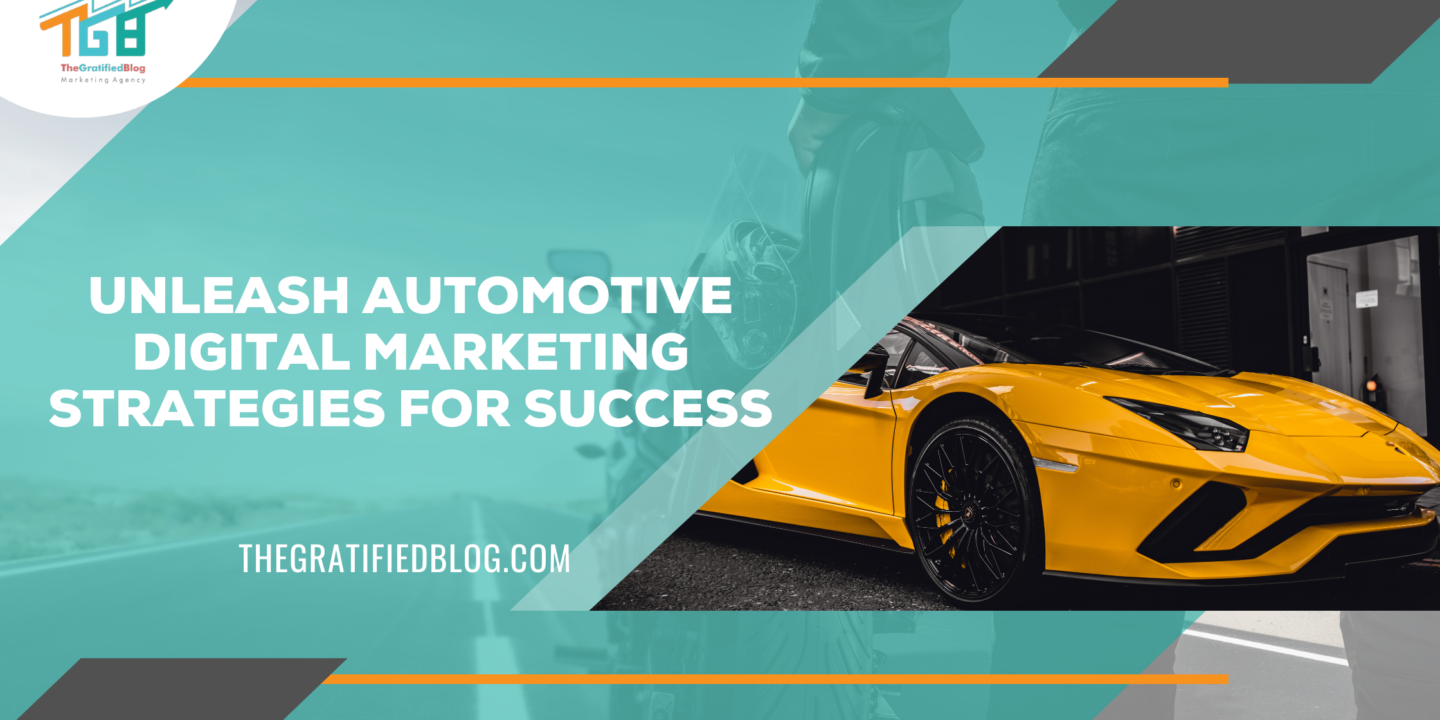
In today’s dynamic automotive landscape, mastering the art of adapting is an essential part of automotive digital marketing to stay ahead of the curve. As technology redefines how consumers interact with brands, automotive businesses must embrace digital strategies to navigate this ever-evolving industry. From reaching tech-savvy car buyers to optimizing online experiences, automotive digital marketing presents many opportunities and challenges. In this blog post, we delve into the strategies, trends, and insights driving success in automotive digital marketing, paving the way for a turbocharged journey into the future of automotive retailing.
Definition Of Automotive Digital Marketing
Automotive digital marketing uses digital channels, technologies, and strategies to promote and sell automotive products and services. It includes a broad spectrum of digital marketing strategies tailored to the automotive industry. It covers SEO alongside social media marketing, paid advertising, email marketing, content marketing, and data analytics.
Evolution of Automotive Marketing
The evolution of automotive marketing reflects a transition from traditional methods to digital strategies. Traditionally, the industry relied on print ads, TV commercials, radio spots, and direct mail campaigns for mass outreach.
While effective in reaching broad audiences, these methods often needed more targeted reach and measurable ROI. Dealerships primarily used local advertising and showroom promotions with limited tracking capabilities for marketing effectiveness.
In recent years, the automotive sector has experienced a notable transition towards digital marketing strategies. This shift stems from the growing consumer reliance on digital technologies like online research, social media, and mobile devices.
Automotive companies now prioritize digital channels such as search engines, social media platforms, email campaigns, and websites. This change allows them to engage with their audience more effectively their target audience through precise targeting, personalized messaging, real-time analytics, and improved ROI compared to traditional approaches.
Key Trends In Automotive Digital Marketing
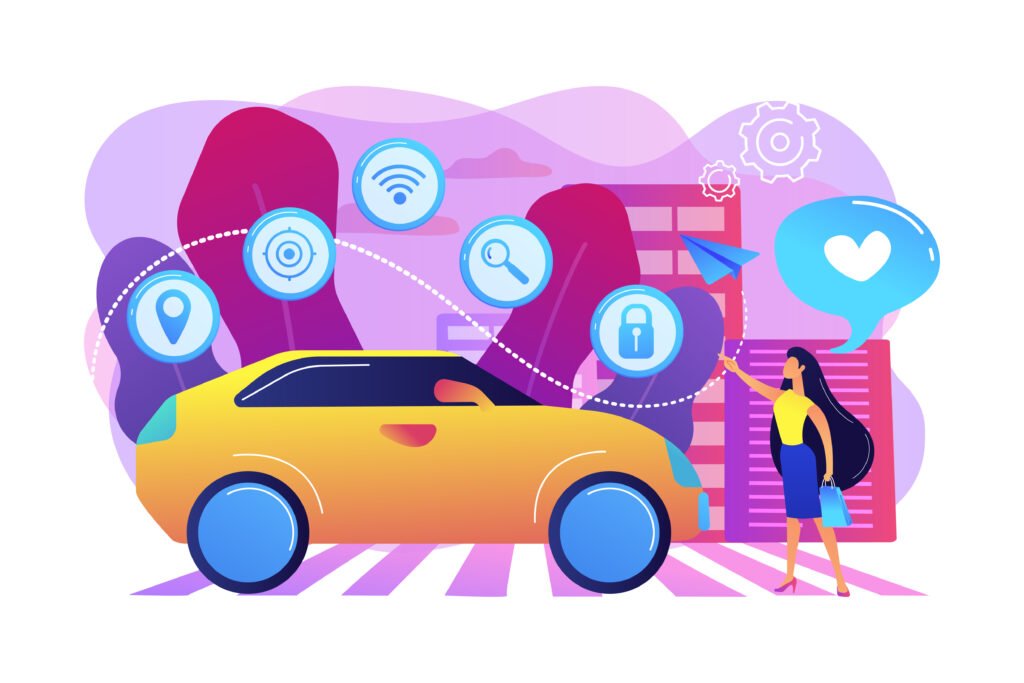
- Data-driven marketing and analytics: Automotive companies increasingly use data analysis to comprehend customer behavior, preferences, and purchase patterns. This data-driven approach helps create targeted marketing campaigns, optimize advertising spending, and improve overall marketing performance.
- Personalization and customer segmentation: Personalized marketing has become crucial in the automotive industry, with brands focusing on creating customized experiences for individual customers. Customer segmentation based on demographics, behavior, and preferences allows tailored messaging and offers that resonate with specific audience segments.
- Mobile marketing and the rise of mobile-first strategies: The extensive adoption of mobile devices has shifted towards mobile marketing strategies. Automotive brands optimize their websites for mobile devices, develop mobile apps, and effectively leverage SMS marketing and mobile advertising to reach consumers on the go.
- Content marketing and storytelling in the automotive sector have gained prominence in engaging consumers and building brand loyalty. Automotive companies create compelling content, such as blogs, videos, and interactive experiences, to educate, entertain, and inspire their audience. Storytelling is vital in connecting with consumers emotionally and creating memorable brand experiences.
- Influencer marketing and its effectiveness in the automotive industry has emerged as a potent tool for automotive brands to reach a wider audience and build credibility. Collaborating with influencers, including automotive enthusiasts, industry experts, and social media personalities, helps create authentic content and effectively reach niche audiences.
Now that you’re familiar with its evolution and the key trends, let’s discuss practical strategies for automotive digital marketing.
Strategies For Effective Automotive Digital Marketing
Search engine optimization (SEO) for automotive websites:
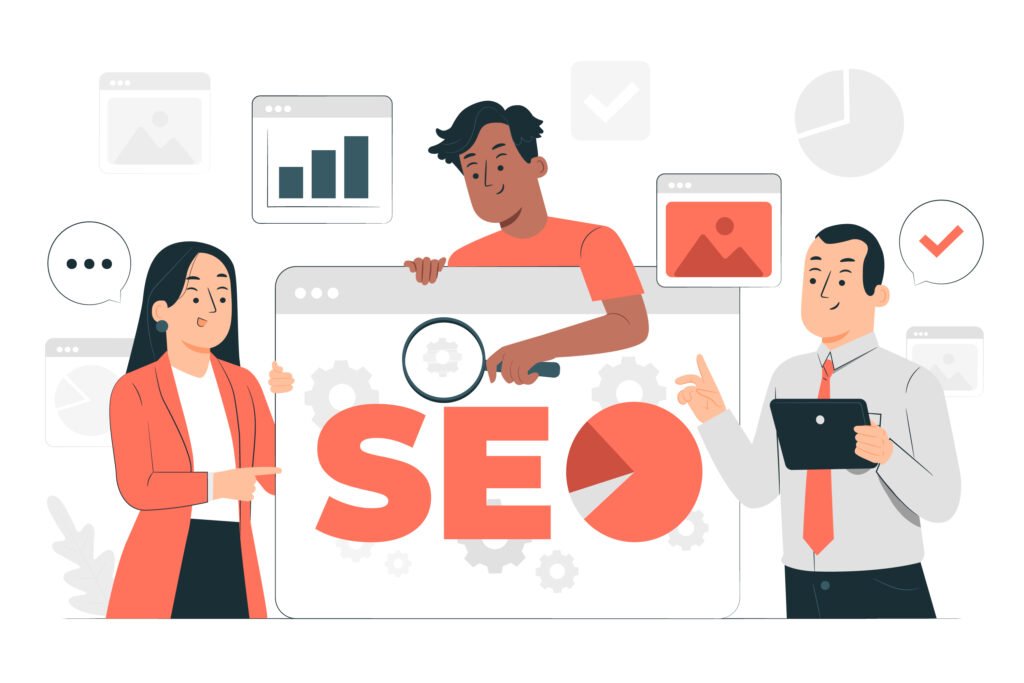
Search engine optimization (SEO) is essential for automotive websites to improve their ranking on search engines’ engine results pages (SERPs). This involves optimizing website content, meta tags, headers, images, and URLs with relevant keywords related to automotive products, services, and locations. SEO also includes technical optimizations like
They enhance site speed, mobile compatibility, and user experience to boost search engine performance: crawlability and indexing. By implementing SEO best practices, automotive websites can Attract organic traffic, increase brand visibility, and generate valuable leads from search engines like Google, Bing, and Yahoo.
Social media marketing for automotive brands:
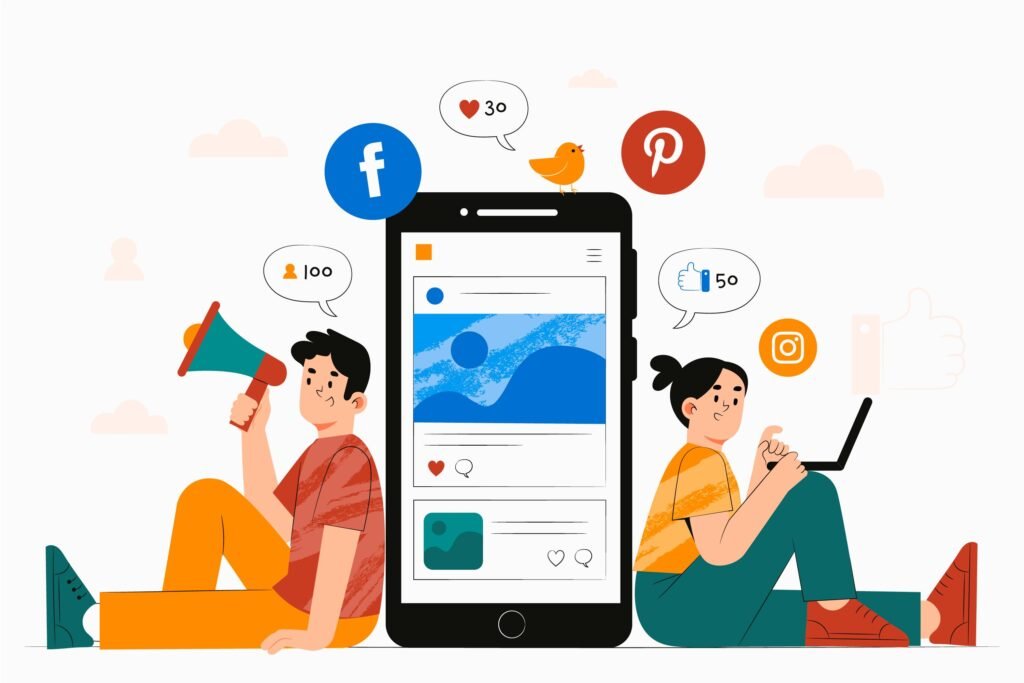
It is a powerful strategy for automotive brands to Engage the audience, create brand recognition, and stimulate customer engagement. Automotive companies can leverage popular social media platforms like Facebook, Instagram, Twitter, LinkedIn, and YouTube to share engaging content, such as product videos, customer testimonials, behind-the-scenes footage, and industry news.
Social media marketing also includes targeted advertising campaigns, influencer collaborations, community management, and social listening to understand consumer sentiment and preferences. By creating a solid social media presence, automotive brands can connect with their audience personally, foster brand loyalty, and increase website traffic and conversion.
Paid advertising strategies on digital platforms:

Paid advertising on digital platforms like Google Ads, Facebook Ads, Instagram Ads, LinkedIn Ads, and YouTube Ads allows automotive brands to reach their target audience with precision and control. Paid advertising strategies include search ads, display ads, video ads, social media ads, remarketing campaigns, and native advertising.
Automotive companies can use advanced targeting options, such as demographics, interests, behavior, and geographic location, to deliver relevant ads to potential customers. Paid advertising also offers performance tracking, A/B testing, and optimization tools to maximize ROI, increase lead generation, and drive conversions for automotive products and services.
Email marketing and CRM integration for automotive businesses:–

Email marketing is an effective strategy for automotive companies to nurture leads, build customer relationships, and drive repeat sales. It involves creating personalized email campaigns based on customer preferences and behavior, such as welcome emails, promotional offers, newsletters, and automated follow-ups.
Email marketing platforms and systems for customer relationship management (CRM) enable automotive companies to segment their email lists, track engagement metrics, analyze campaign performance, and integrate customer data for targeted communications. By leveraging email marketing and CRM integration, automotive businesses can improve lead generation, increase customer retention, and boost sales conversions through targeted messaging and relevant offers.
Conversion rate optimization (CRO) tactics for automotive leads:
Conversion rate optimization (CRO) focuses on optimizing website elements and user experience to increase the percentage of visitors who become leads or customers. Automotive companies can implement CRO tactics such as A/B testing, website design improvements, clear call-to-actions (CTAs), persuasive copywriting, streamlined checkout processes, and trust signals (customer reviews and testimonials).
CRO also involves analyzing website performance metrics, identifying conversion barriers, and making data-driven optimizations to improve conversion rates at different customer journey stages. By continuously optimizing for conversions, automotive brands can maximize the value of their website traffic, enhance the quality of leads, and drive revenue growth.
Now, let’s talk about the common challenges faced by automotive marketers.
Common challenges faced by automotive marketers
- Increasing Competition and Market Saturation: The automotive industry is fiercely competitive, with many brands competing for consumer attention. This saturation makes it challenging for marketers to differentiate their offerings and stand out amidst a crowded market. Brands must develop unique value propositions, innovative products, and compelling marketing campaigns to capture market share and maintain a competitive edge.
- Complex Consumer Journey and Purchase Process: The automotive purchase journey is often lengthy and complex, involving extensive research, comparison shopping, test drives, financing considerations, and post-purchase services. Marketers face the challenge of guiding consumers through each stage of the journey, addressing their concerns, providing relevant information, and offering a seamless and personalized experience across online and offline channels. Navigating this complex purchase process requires targeted marketing strategies, effective communication, and robust customer engagement tactics.
- Technological Disruption and Rapid Advancements: The automotive industry is undergoing rapid technological advancements, such as electric vehicles (EVs), autonomous driving technologies, connected cars, and digital innovations. Marketers must adapt and integrate these technological disruptions into their marketing strategies effectively. This includes leveraging data analytics, AI-driven marketing tools, virtual reality (VR) experiences, and mobile apps to engage consumers, showcase product features, and demonstrate technological advancements that resonate with tech-savvy customers.
- Regulatory Compliance and Industry Standards: Automotive marketers face challenges related to regulatory compliance, industry standards, and ethical considerations. This includes adhering to advertising guidelines, safety regulations, emissions standards, consumer data protection laws (such as GDPR and CCPA), and industry best practices. Marketers must ensure their marketing campaigns are transparent, compliant, and ethical while addressing consumer concerns regarding environmental impact, safety features, and sustainable practices. Maintaining a balance between regulatory compliance and innovative marketing strategies is crucial in the automotive industry.
Now, let’s delve into the impact of emerging technologies and future predictions in automotive digital marketing.
Emerging Technologies & Impact And Future Predictions In Automotive Digital Marketing
Emerging technologies and their impact on automotive digital marketing
Emerging technologies are reshaping automotive digital marketing and paving the way for future advancements in the industry.
Here’s an overview of some key emerging technologies and their impact on automotive marketing, followed by predictions for the future of automotive marketing in the digital age:
Emerging Technologies And Impact On Automotive Digital Marketing
Electric Vehicles (EVs) And Sustainable Mobility
The rise of electric vehicles and sustainable mobility solutions influences automotive marketing strategies. Marketers highlight eco-friendly features, promote electric and hybrid models, and showcase sustainability initiatives to appeal to environmentally conscious consumers. This trend is driving the adoption of green marketing campaigns, and messaging focused on reducing carbon footprints.
Autonomous Driving And Connected Cars
Autonomous driving technologies and connected cars transform how consumers interact with vehicles. Automotive marketers leverage these technologies to offer personalized experiences, such as in-car entertainment, predictive maintenance alerts, and advanced safety features.
Marketers are also exploring opportunities for location-based advertising, data-driven insights from connected vehicles, and partnerships with tech companies to enhance the overall customer experience.
Augmented Reality (AR) And Virtual Reality (VR)
AR and VR technologies are revolutionizing automotive marketing by enabling immersive experiences for consumers. Marketers use AR and VR for virtual showrooms, interactive product demonstrations, virtual test drives, and personalized shopping experiences.
These technologies enhance engagement, increase brand recall, and drive conversions by allowing consumers to visualize and experience automotive products in a virtual environment.
Artificial Intelligence (AI) And Data Analytics
AI-powered tools and data analytics empower automotive marketers to make data-driven decisions, personalize marketing campaigns, and improve customer insights. AI algorithms analyze consumer behavior, predict purchase intent, automate marketing tasks, and optimize ad targeting for better ROI. Marketers also use AI chatbots for customer support, lead generation, and personalized recommendations.
Predictions For The Future Of Automotive Marketing In The Digital Age
Hyper-Personalization
Automotive marketing will evolve towards hyper-personalization, where brands deliver highly tailored experiences based on individual preferences, behaviors, and needs. AI and machine learning algorithms will be crucial in analyzing customer data, predicting intent, and delivering personalized content, offers, and recommendations across multiple touchpoints.
Integrated Omnichannel Experiences
The future of automotive marketing will focus on seamless omnichannel experiences, integrating online and offline interactions to create a cohesive customer journey. Marketers will leverage IoT devices, mobile apps, social media platforms, and physical showrooms to engage consumers at every stage of the purchase process, from research and discovery to post-purchase support.
Emphasis On Sustainability And Social Responsibility
Sustainability and social responsibility will become central themes in automotive marketing, with brands highlighting eco-friendly practices, carbon-neutral initiatives, and ethical manufacturing processes. Green marketing campaigns, sustainable packaging, and transparent CSR efforts will resonate with environmentally conscious consumers and drive brand loyalty.
Overall, the future of automotive marketing in the digital age will be characterized by innovation, personalization, sustainability, and customer-centric strategies leveraging emerging technologies to drive growth, differentiation, and brand relevance in a rapidly evolving industry landscape.
Conclusion
Having delved into the intricacies of automotive digital marketing, it’s evident that this field is dynamic and constantly evolving. With a comprehensive understanding of emerging technologies, key trends, practical strategies, and future predictions, it becomes clear why automotive digital marketing is crucial for success in the modern automotive industry. With technology continually influencing consumer behavior and preferences, marketers must adapt and innovate to stay ahead of the competition.
However, if you still have any blog questions, leave them in the comment section. We will be happy to answer you.
Thanks for reading 🙂




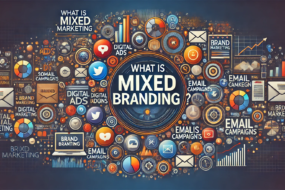
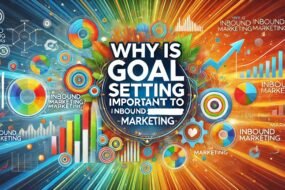
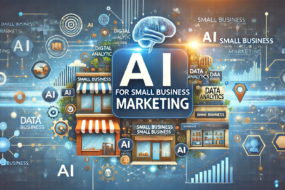

No Comments